|
This year, The Australia Council, the bigwigs who get the final say on who represents Australia at the Biennale, made the commendable decision of opting for a pretty audacious, experimental installation.
In selecting artist Marco Fusinato to represent Australia this year, they essentially allow the Australian pavilion to deliver the Biennale's one, true rock star moment of the year. Of all the shows that I saw this year, DESASTRES felt the edgiest. It was, at least, the closest any national pavilion got to offering up a truly experimental experience.
0 Comments
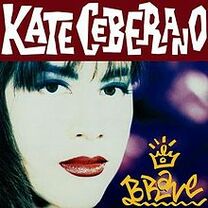 I hate to tip my hat to Taylor Swift, but she really was onto something. 1989 really was a watershed year for pop music. As the months roll on this year, you'll find that your social media feeds will be brimming with 30 year anniversary posts. Some key albums from 1989 have had a lasting impact worldwide; others proved transformative in their local markets. There was something about 1989 that pushed a lot of eighties acts to lift their game; to do something to justify your attention into the next decade. So many eighties pop acts seemed to come of age that year. In Australia, as in some other countries in the colonial world, we were still coming out of a bit of a rock music haze. We certainly had lapped up the work of the international superstars, but we were a bit late to the pop party locally. For better or worse, genres other than rock really only started to gain traction in the mid eighties in Oz. You were more likely to find yourself down the pub watching a bunch of frizzy haired guys in acid wash making their air guitar dreams come true than you were to be having a little shuffle in the middle of a heaving dancefloor back then. There were certainly some great Aussie pop acts that emerged in the eighties (mostly for a flash) in Australia, but for the most part we had to wait until the end of the decade for female artists to be given the space to break the rock (chick) mould. Before then it was unheard of for a record company and the media to really get behind a local lady and really give their work the kind of attention usually reserved for the blokes. If you have even an ounce of Australian in you, then you know that Kate Ceberano is a national treasure; a versatile singer who effottlessly jumped across jazz, pop and funk as she paved out an unorthodox career that now spans three decades. In 1989, she released her first proper pop debut; Brave, and for a year she and her Ministry of Fun were everywhere. She achieved great commercial sucess with her solo debut. But more importantly Kate really ushered in a new era for Australian music. 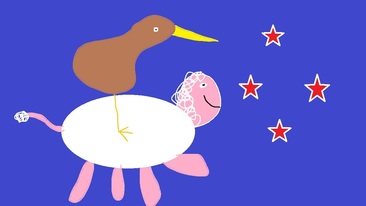 As an Aussie, it pains me to say it. But New Zealand is superior to Australia as a country. Rugby, politics, indigenous relations, same sex marriage, refugees, making trilogies about talking trees and quests for rings... New Zealand is just better than Australia at all of those things. Thank god the Kiwi accent is awful, otherwise Aussies would just have the worst inferiority complex to their tiny neighbour. When people ask me about Australia, they have this idea that Australia is a modern, progressive country. I don't correct them on it. But only because the truth is just embarrassing. Australia is terribly backward about a lot of stuff. And lately people here in Europe are wisening up. They're obsessed with Master Chef Australia (positive reaction) and Border Patrol (negative reaction), but all I can say is thank god they don't get The Block here. They pin me down and ask me how I can defend Australia's terrible policy when it comes to migrants (I can't). They ask me about that loopy redhead that got re-elected to the senate again on a platform of Islamaphobia (I just point to how strong the far right is here in Europe). They ask me why Aboriginal Australia is seen so differently by white Australia when white New Zealand has made such strides in its relationship with the Maoris (this is where I run out of general leftie responses). But when they speak about New Zealand (because, you know, Australia/New Zealand same same) they never have anything negative to say. And they've got a point. New Zealand is the progressive, modern country of the Asia Pacific region. They have their own Silicon Valley. And even though their rugby team decimates Italy on a regular basis, Italians only have awe for the Kiwis. Last year, to try and get a one up on Australia, the New Zealand government decided it was time to change their flag. Their flag, I should remind you, is almost identical to Australia's and I'm sure they were tired of being mistaken for their bigger, more famous sister country. In Australia, if we wanted to change the flag, we'd shell out millions and millions of dollars to a slew of marketing agencies, designers from abroad or the art world's darling from five years ago. But our tiny neighbour is more progressive than that. They simply opened up a new flag design to the people. The results were breathtaking. This wasn't a Biennale year in Venice, but even if it had been, the NZ flag contest would've put the art world in the shade because it was priceless. Designers world wide would've abandoned Illustrator and gone back to Paint, because that's where the future of design lies (in N.Z at least). New Zealanders wanted to come to the flag party. So much so, that over 10,000 entries were received in the open call. The majority of them were technologically savvy and avant garde. For a tiny minute at least, it looked as if New Zealand was going to turn the horrors of 2016 around all on its own. It was going to make the world a better place, and shake up the political order with its new flag. But, because 2016 was born from a butt hole, there was no justice in the end.
Kiwis went to the polls with a much reduced series of choices. Boring, conventional, practical choices. And in the end, after millions of dollars, all that excitement came to nought. Because the Kiwis decided to stick with what they had. The original, Australian imitation flag. 2016 sucks. 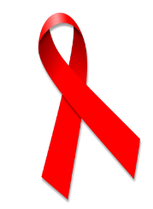 It's World Aids Day today. A day to reflect on how modern life has so thoroughly changed the way many of us interact. How such a cruel and infatiguable disease has been responsible for so much heartbreak and the loss of life. A day to remind us to be ever vigilant and to not take for granted the immense toll four letters have brought with them. I'm catching up on things. I finally got around to watching Behind The Candelabra this week. Dubbed in Italian of course (urgh). I'm told Liberace wasn't really well known in this neck of the woods, but the movie's message went beyond being a simple, enjoyable biopic. Liberace's AIDS related death in the mid 1980s was realistically, if briefly portrayed in the film. But it was enough to bring back memories of what it was like growing up in the eighties in the shadow of HIV/AIDS and the fear and pandemonium it sparked. I don't know what it was like for you growing up where you did, but I have two really clear memories about the AIDS epidemic from back then. Beyond the tragedy of it all, I have really vivid memories about how awful we were in Australia. How the media in particular played such a huge role in a scare campaign that was often cruel and lacking in compassion. The most vivid of my memories was based on an infamous public service announcement that aired regularly. It's referred to as the Grim Reaper ad, and even now, it's still chilling. It was an ad that really represented how little we knew and how much we feared. The breakthroughs that have made HIV more manageable today weren't existent back then. Being school aged I remember people being terrified of bodily contact, of how ideas like using a restroom was suddenly dangerous. Of how the stigma of the disease took shape and took hold. Of how prejudice and witch hunts were the norm in Australia. If anybody embodied the tragedy of the AIDS epidemic for Australians, it was little Eve Van Grafhorst. Born prematurely in 1982, she'd contracted the virus from one of a dozen or so blood transfusions as a newborn. Her condition quickly led to Eve and her family being on the receiving end of all kinds of uninformed prejudice and harrassment in Australia, and to her being expelled from her kindergarten she attended for fear that she would infect the other children. A witch hunt, faithfully covered by the Australian press, ensued and life in Australia became unbearable for the family. The family was welcomed with open arms by the town of Hastings in New Zealand where they were forced to start a new life, where Eve would go on to become the public, human face of the disease. In New Zealand, her presence was a reminder of the compassion of the country's people and of the Australian community's intolerance. Despite her young age, Eve played a vital part in educating the public in Australia and New Zealand about AIDS and AIDS sufferers. There's a lovely commemoration over at Stuff reminding us what Eve taught us and I've included a video below that commemorated her life and death. There have been medical advances and we've managed to shake off some of the stigma attached to HIV and AIDS. But we need to do more, to be constantly vigilant and to ensure that the younger generations rid themselves of the false sense of security that seems to be infiltrating the community again. Get tested. Get informed and do your part in stamping out ignorance. 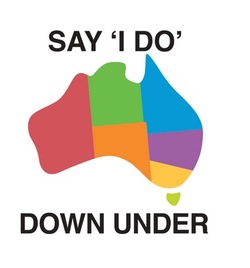 This is of course a blog and therefore, the opinion pieces here are endless. So, in keeping with the last post I thought I might try and let you in on a campaign that I'm loving right now. Firstly, can I just say that I love this image of Australia? Ours is a country that is divided into six states and two territories, of which the ACT (Australian Capital Territory) is one. For those of you who don't know, Canberra is our capital and therefore home to our parliament. It's kind of in the center east of the purple part of the image. Now, I don't want to speak poorly of people from Canberra, but there's something about this map that I just love: there's no ACT on it, and therefore, no representation of our government, even if the ACT itself is a pretty progressive place when it comes to legislation and policy. Australia is a place that a lot of people have distinct ideas about: the place where you kangaroos and koalas charm, where hot surfies and beautiful beaches are a dime a dozen and the place which produced not one, but two Minogues (hi Dannii!!). Kylie, in addition to being a bonafide pop and gay icon, is a national treasure. Many of us have grown up with her, watching her on telly on different soapies in the eighties and then watching her parlay her frizzy blonde perm and her pixie like self into the world of pop music where she has more or less remained for the last three decades. She's had some high profile hits, misses and romances in her time (including Michael Hutchence and my personal fave Andres Velenscoso), but, I think she's outdone herself this time around. 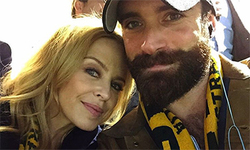 Consider exhibit A: Joshua Sasse, her fiance. Not only are they a super cute couple, but low and behold, Mr. Sasse has turned out to be not just an actor, but an activist to boot. He's launched a campaign called Say I Do, Down Under in an effort to raising awareness of the Australian government's immobility on same sex unions. Like any good viral campaign it's been picking up support from all kinds of high profile figures in the entertainment world, and of course Kylie is among them, recently declaring that she won't marry until Australia's LGBT community can legally do so to. A touch of the Brangelinas about the statement perhaps, but all's good in the name of a good cause. You can support Joshua's initiative through sharing on social networks as Ellen DeGeneris recently did, or by purchasing your own tee with that cute little map of Australia on it from the website. Ding dong! The plebiscite is (all but) dead.
I don't want to shatter your illusions but Australia is much like most other Western nations these days. It's a country marked by bitter divisions and for some time, has been host to a series of parliaments who haven't been able to play well together. Think minority governments who are constantly sparring with one another and tapping into the handful of independents who often allow the government of the day to hold sway. Unlike most every Western nation, Australia has not yet seen fit to offer Same Sex Marriage to its citizens. This is despite what polls and the majority of the Australian public know: Australians are overwhelmingly in favour of Same Sex Marriage, and, are tired of the political machine in place aimed at stopping it. During the Bush era, one of Australia's longest serving prime ministers, John Howard, followed the USA's lead back in 2004 and changed the country's Marriage Act so that it explicitly defined marriage as a union between 'a man' and 'a woman'. This was designed to preempt what politicians saw was coming around the corner: the general public's approval of same sex unions. Once Howard's government was finally voted out in December 2007, after an eleven year term, Australia swung back towards the left. But public opinion had not quite reached the point it has today and in two divisive terms of government (which included the ousting of a Prime Minister), the left failed to make any progress on the grounds of same sex unions. After the public grew tired of the left's factional fighting, one of the most divisive mainstream political figures of the modern era emerged: Prime Minister Tony Abbott. Catholic background and ties, shrewd and ultra conservative, he pushed Australia back to the right and, among his controversial policies (including those of towing back the boats of migrants arriving from Indonesian waters) was a binding policy in which members of his Liberal party were silenced on the issue of same sex unions. Under his leadership, the Liberals could not have a free vote on the issue which by his arrival in parliament in 2013 had become a mainstream issue. To appease the other conservatives in his party (and its coalition partner the National Party), he devised the idea of a non binding Plebiscite, which would buy the government time and allow for the further postponement of debates and any resolution of the matter. It was a policy that outraged many in the public, and though Abbott was to fall on his sword in a leadership challenge, it's a policy that his replacement, Malcolm Turnbull has chosen to maintain. Today, the opposition effectively torpedoed the plebiscite citing studies and opinions which pointed to it being a costly, divisive, and ultimately non binding course of action. Public debate in recent months has focused on the Irish example where bitter campaigns financed by the church and other conservative interests led to all kinds of hate speech filling the public arena and spurring threats of violence and discrimination among the LGBT community. The bill will still go to the senate where it is likely to fail, but the question remains, what will the Current Wizard of Oz do? Will he continue to hide behind the safety jacket of Tony Abbott's policy, shielding him from the wrath of the conservatives within his party, or, will he, as a self professed supporter of Same Sex Marriage actually grow a pair and stand up to his party faction, allowing all of its members a free vote on the issue and an end to what feels like has been an endless debate? The wisest of all of Australia's political commentators has her thoughts here. AFTER Countdown's demise in the late 80s, music as we know it became more splintered and fragmented. Audiences and record companies championed the idea of genre more than ever, and if you were growing up in Australia in the 1990s, then the most powerful voice for music became the Triple J radio station - a national 'youth' network run by the ABC (responsible for Countdown's enduring run over the industry via television from the mid 70s to late 80s). If you've ever been to Australia you've probably noticed that there is a really strong indie scene that exists there - although these days that is being challenged by the ever growing electronic/dance culture. I've always loved jumping between the two with a dash of pop to keep myself level and adjusted. Since the 1990s, Triple J has invited its listeners to vote for its favourite songs of the year. They offer up a track list, a kind of voting guide which was once very alternative/indie heavy, but is increasingly more EDM and pop friendly. The 100 biggest selections then get counted down on Australia Day (26/01) and if you're not an Aussie you can not underestimate how significant this is on a cultural level in Australia. One of the assets of Triple J is that it has an amazingly varied playlist: it's a respected music channel and its Unearthed and Like a Version series in particular are incredibly popular with the Australian public. With Unearthed - Triple J hoists unsigned local bands onto their network with a nation wide Battle of the Bands. Numerous past winners have gone on to bigger and better things as a result. One of the earliest winners were Silverchair. Recent winners were Rubens. Like a Version is a sensational program in which artists are invited to cover their favourite songs, the best of which are released on an annual compliation. Again, a brilliant initiative designed at looking at music as being something beyond a 4 minute genre exercise. This year's Hottest 100 has just been counted down and the winners are the Rubens. Australian acts took out 55% of the chart, though some of the years biggest EDM hits did very well. The mainstream media have noted that pop, rap and EDM are taking an increased share of listener's votes. But the list is a great list of music across all genres which is great news. The year's controversy was based around a betting agency taking bets and targeting young, economically vulnerable listeners. No Taylor Swift being banished from the votes this year to get everybody's knickers in a twist. Just maddening private business policies that stand to make a quick buck at everyone else's expense. More on that here. Some of my favourite songs of 2015 weren't even eligible for voting. But, in keeping with all this countdown inspired rhetoric, here are five of my favourites of 2015 that I would've voted for. 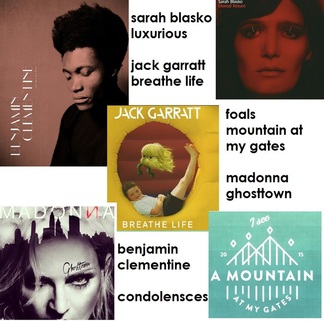 Sarah Blasko Luxurious Sarah is one of Australia's most important artists. She hasn't had an international break yet, but she's someone to seek out. Jack Garratt Breathe Life Love him. A newcomer who is mixing genres in a brilliant way. Foals A Mountain at My Gates Totally loving these Brits and their short arms!! Great driving music! Madonna Ghosttown Last year's big pop injustice was that this wasn't huge. Amazing. Benjamin Clementine Condolensce What a revelation. 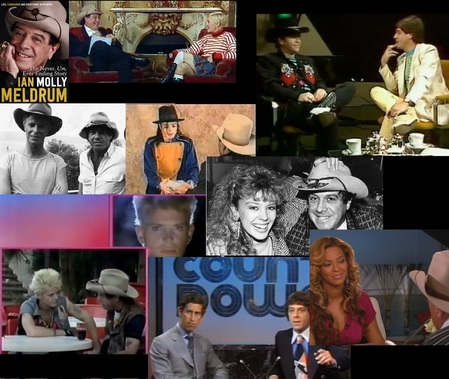 If you're an Aussie there are arguably only two terms that you ever needed to use in reference to the music industry and music journalism in general - at least up until the nineties. Molly or the Pop Guru. Despite his tendency to mumble, stutter and basically get all his words mixed up when he speaks, or perhaps precisely because of this, Ian "Molly" Meldrum endeared himself to Australia, and to the music industry from early on. He got his start in the sixties as a dancer, columnist and emerging figure on the Melbourne and London scenes. But his ability to endear himself to so many was his calling card and soon enough he was approached by the Australian ABC to come up with a youth oriented program. From there, the phenomenon that was Countdown was born. It was an hour long show in prime time which was a sort of a Top of the Pops scenario. It had a huge hand in making Australia, one of the least populated countries in the Western World, one of the ten biggest record buying markets around the world. Aussies today remain some of the biggest record buyers worldwide. Molly opened the doors to the Australian market to anyone that was remotely pop oriented, and although he tended to be on the supportive side, he rarely championed artists or acts that he didn't believe in. He broke artists like Madonna to their first mainstream audiences and a performance or appearance on Countdown would routinely drive record sales up by up to 400%. In fact one of the criticisms of the show was that it completely dominated the record industry in Australia, its playlist often defining the following week's charts. Countdown from its 1974 inception to its 1987 demise was a national institution and although it didn't make into the nineties and beyond, Molly endured. He's just had a fall in Bangkok, but Australia is not having any difficulty in jumping all over his enduring legacy. His long awaited autobiography The Never, Um, Ever Ending Story is currently a best seller and a TV miniseries on his life is about to hit the airwaves, preceded by a 3 disc compilation album which has already reached the Australian top ten. I read the 500+ page tome on the plane ride home. It was lightweight, nostalgic and very Countdown centric (it's focused mostly on his Countdown years). But there were a few really lovely moments such as the quote by Jim Keays of The Masters Apprentices. I used to have a go at Molly for always pushing lightweight pop stuff. But one day he told me that acts such as Kylie are the catalyst that got young kids in music. For a long time, I didn't see it, but he's absolutely right. And now I realise how important that is. He is fostering the acts that will get people involved in music. Molly and Countdown were huge influences on me growing up in Australia. I initially wanted to be a music journalist when I was younger and back then some of my friends used to joke that I was a pop guru in the making.
I never pursued that path, but I made sure to make numerous references in Vinyl Tiger to Molly, Countdown and the state of the music industry in Australia in what were my formative years. Get well Molly! You're a stumbling, bumbling national treasure. 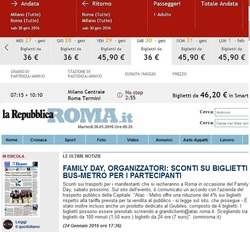 I just spent the last month back in my hometown of Melbourne. I have to say aside from having the chance to spend time with family and friends, and to soak up the Australian summer amidst the backdrop of events like Midsumma and the Australian Open, being back in Australia was like a breath of fresh air. This is my sixth year in Italy, and getting on the plane to come back here was difficult, not just because I was coming back to winter, but also because it meant re-entering the fraccas that is the never ending polemica. Today is Australia Day and there are some major ongoing issues that need confronting in Australia including the divide between rich and poor, ongoing racism and a growing anti Muslim stance, but for the most part I think Australians are a tolerant and respectful bunch. Differences of opinions are rarely the source of deep divisions in society and in the media. It's not often a case of us versus them, let's just say. Here in Italy, things are different. Italy, in my mind, has to be one of the capitals of divisive thought. A fractured, splintered media makes a huge contribution to this, as does the existence of organizations like the Catholic Church. There are so many entrenched, vested interests in this country that it feels as if Italians are stuck under a net so intricately weaved that if they ever make it up to the surface, the only thing they are capable of doing is taking shallow breaths. I'm Australian and my partner is Italian. We've been together for more than five years. The thing is we come from two opposite spectrums of the world: I'm from the new world and he's from one of the historic centres of the world as we know it. Yet, as an Australian and an Italian we both share one thing in common. We both come from the last Western countries in our cultural worlds that don't offer equality marriage. Italy is the last major Western European nation that doesn't recognise same sex unions, and Australia is the last major country in the Anglosphere that hasn't enshrined things in law. Now, don't get me wrong. It's not like I want to get to married. In Australia, my long term relationship with my partner is technically recognised to some extent by the existing de facto laws there. But not wanting to get married and not even having the choice or right to choose really infuriates me. What do you care? You might think. You're happy - you've been together for five years, what will a piece of paper change? Nothing. Not on a daily basis. But not all people marry because they want to feel different about each other. Some people marry for practical reasons. And married friends who have been together less time than I've been with my partner have a host of financial, employment and medical rights that we can only dream about. What do you care? Well. Let me illustrate how this works. You see, I come from a state in Australia called Victoria. Although Australia doesn't offer same sex unions or marriage, Victoria at least recognises same sex unions from other countries, has just passed same sex adoption laws and at the moment offers a register (although as it is purely symbolic why would I bother?). And if something happens to you, you need the protection of the law. As a human being, if something happens to me or my partner, I would like to think that either one of us would have the support and the right to decide what happens, what needs to be done, and that the other will be protected. For those who aren't able to comprehend what this means on a human basis, Iet me draw your attention to this recent and shocking set of events that occured in South Australia, Victoria's neighbour state which doesn't recognise foreign same sex unions. This is the senseless, inhumane setting in which same sex couples exist in many countries. Even with the protection of the law it's not a fun and games scenario. So, having travelled over 30 hours to get back to where I am now based, two hours after landing at my local airport, I found myself in a piazza in Lecce at a demonstration. And why was I there on Saturday? Because this week, the Italian parliament is due to debate the Renzi government's bill to introduce same sex civil unions. The bill is likely to be defeated? Why? Because of a provision for same sex couples to adopt which has courted the ire of the Catholic Church which is deeply entrenched in the Italian political system (and surprisingly, also incredibly powerful on the Australian political right- hence the failure to legislate despite overwhelming public consensus). Now I am all for everybody having their own opinions. I believe it is your right as a persoon to choose not to agree with certain aspects of a wider society. I get that. I don't agree with it, but you as a person are entitled to your opinion. But in my books, what nobody is entitled to is the denial of an identical set of rights to another group of people or individuals. I respect and value your life and I expect you to do the same with me. And as a result I am infuriated by news in recent days that the Catholic church speared Family Day demonstations (as cynical a name as possible for an event which seeks to diminish any idea of a family that doesn't correspond to what the Catholic church defines as 'normal') are privvy to yet more rights at the expense of others. This time, transport group Italo is offering discounts to those in Italy who would like to attend the Family Day demonstration this coming Saturday in Rome. This on top of local churches who are offering a 50 euro picnic+demonstration package to parishioners who agree to attend the marches. Even the city of Rome's public transport group is offering discounts. I made my own way to the demonstration on Saturday. I didn't get offered a discount for that, and I attended in part because I demand the right to be treated equally under the law as anyone else. What I don't appreciate is that aside from the ridiculous hipocrisy of the organisers of Family Day (the idea of a twice divorced, philandering politician and priests who have no idea what modern life resembles), their push to ensure that the GLBT community continues to live on the fringes of what is acceptable in society and by law is being backed by both public and private organizations. I won't even go into the idea that some churches are even offering a cash handout to those who are willing to head to Rome for the day. All that is left to ask is, is this the kind of world that we should be living in today in 2016? How is this acceptable in any place in the world? Appalling. I'm not anti Catholic, but I tell you what, living in Italy really makes me wonder whether common sense simply suggests I should be. 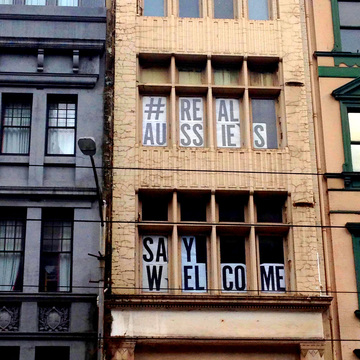 THE climate here in Australia is quite different to that which you can easily perceive in Europe. People aren't on the high alert here in capital cities as they are in Europe - clearly because the perceived level of risk is lower. That said, the Australian government, and the vocal right are still mostly immigrant unfriendly. There were recent reports of a dying international student's wish to be joined by his family members and of how the request was denied by the immigration minister and department. A huge campaign and public backlash has seen the decision reversed, and acted as a reminder that the Australian government on the whole, does not reflect the minds and wishes of many of its people. Because #realaussiessaywelcome. |
Dave
|
|
|
Dave Di Vito is a writer, teacher and former curator.He's also the author of the Vinyl Tiger series and Replace The Sky.
For information about upcoming writing projects subscribe to the mailing list. Dave hates SPAM so he won't trouble you with any of his own. He promises. |
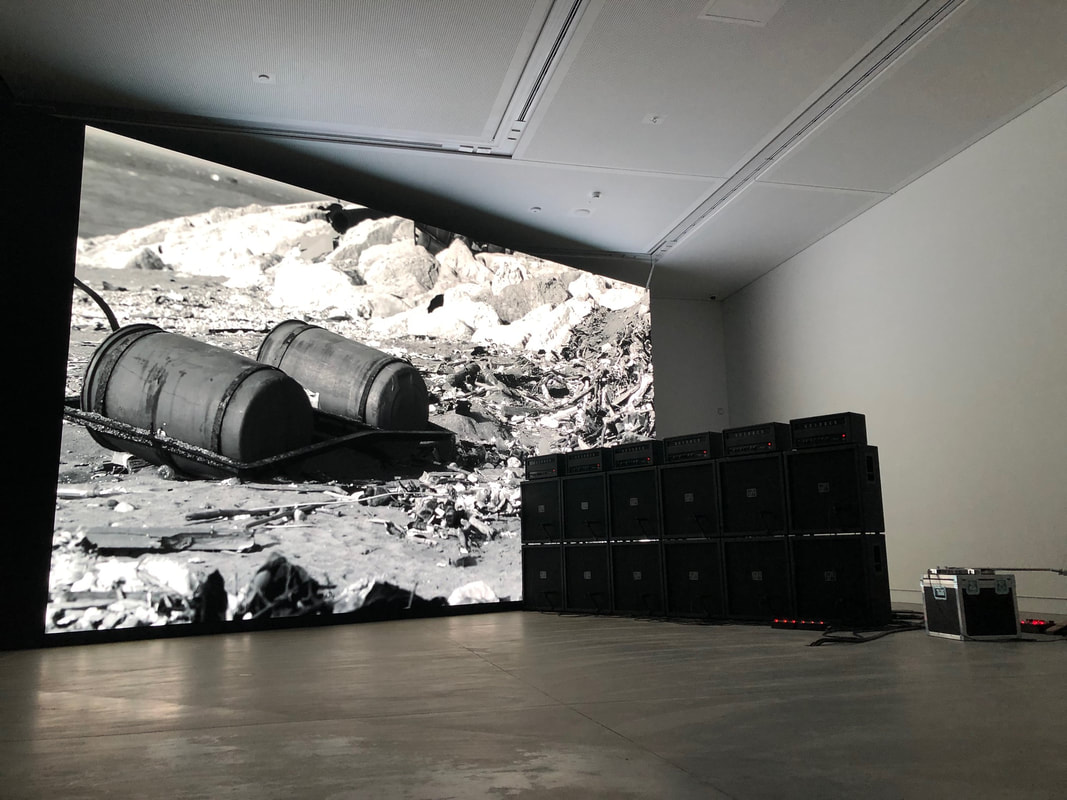
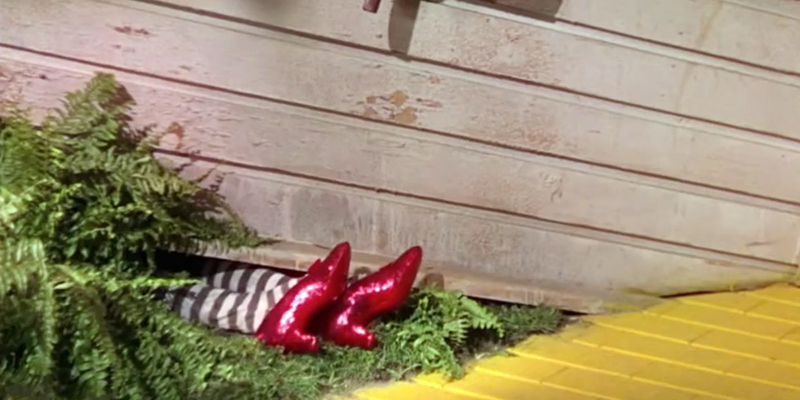
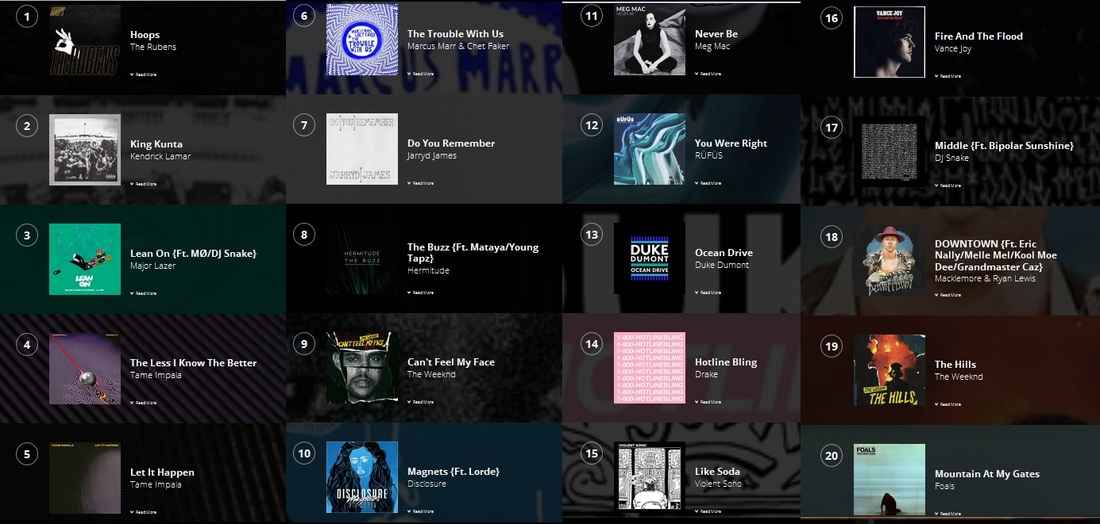
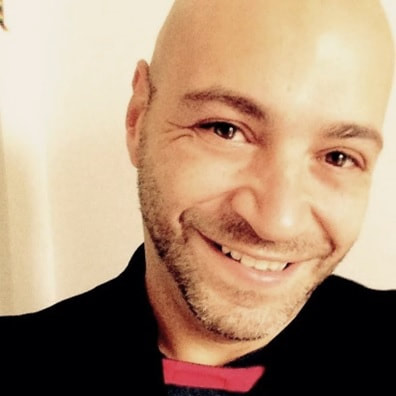
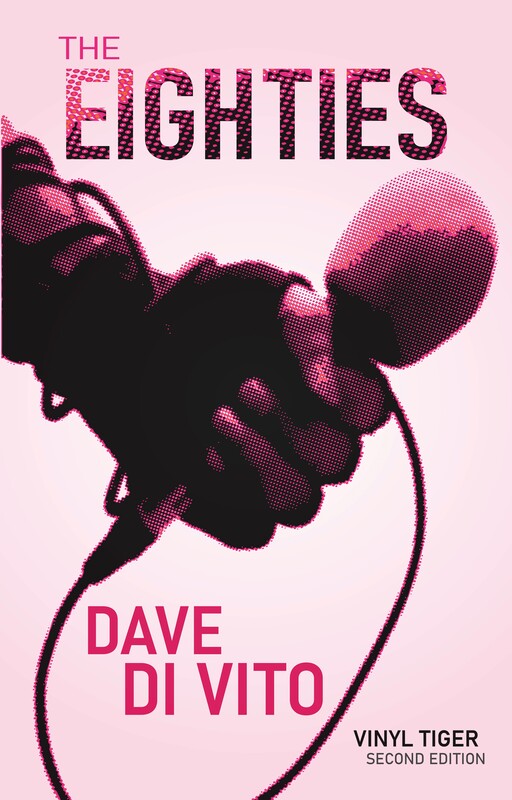
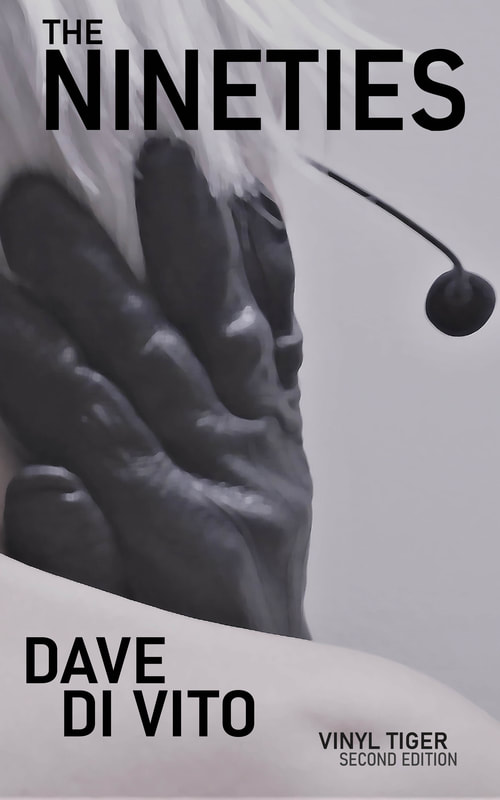
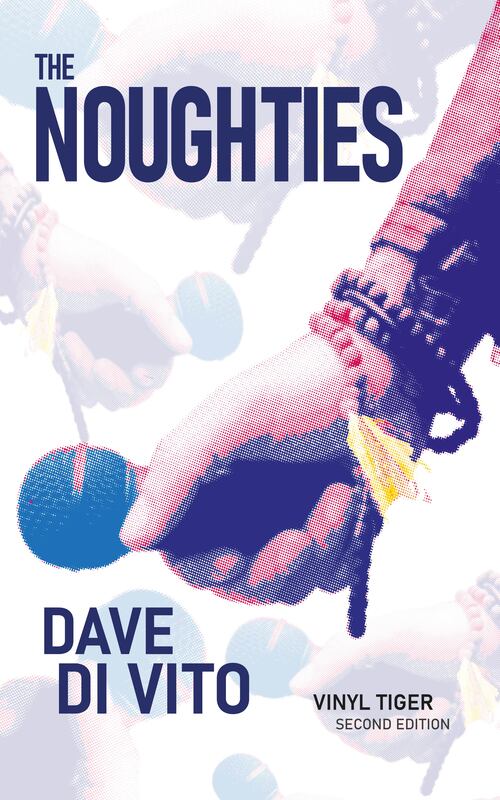
 RSS Feed
RSS Feed